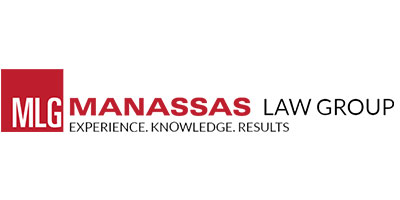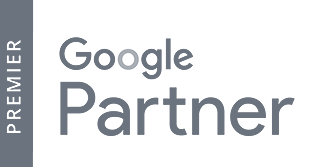Best Lawyer Marketing
Law Firm Marketing Services
Fully Managed Law Firm Internet Marketing Services
Law Firm Marketing: How Do We Do It?
Google’s search engine is a machine that’s always learning by using its algorithm to understand keywords, content, and the context in which they are used.
Google is constantly building a graphical database to try and connect the dots to better understand who you are and what you provide so it can better connect you to people searching for you and/or your product or service.
For example, consider the word “diamond.”
A diamond can be a precious stone, a baseball field, or an average country singer named Neil.
Alone, the word, diamond, can be a number of things, but once Google starts to read and understand the other words on the page and the context in which it is written, Google can better define that diamond.
Introducing Learning Logic™
Learning Logic™ is the digital marketing process of using custom code programmed to teach Google who you are, where you are, what you provide, where you provide it, and how your other entities on the web are associated with you, such as your social profiles and directory listings.
Essentially, we’re speaking Google’s language in the method in which it prefers, designed to teach it to connect the dots so it’s not having to guess.
Most big box digital marketers will claim they do this, but there is a gap in their effort as it’s not scalable to write custom code, at length, designed to fully educate Google to the depth and breadth of what you provide to the people searching for your services.
Our tailored lead generation strategies will elevate your firm’s online presence, attract more clients, and boost your success in the digital era. Partner with our law firm marketing agency and achieve a compelling legal brand that stands out against direct competitors. Let’s maximize your firm’s potential and watch your law firm grow together!
The Digital Logic law firm marketing team is filled with experts at revenue-driving tactics for our large and small law firms alike.
We manage all digital marketing of legal services, including law firm website design, law firm SEO services, law firm ppc management, law firm content marketing, digital advertising, paid media, and marketing assets, social media ads, blog posting, graphic design, and directory listings.
We’ve proven to be one of the best legal marketing companies in every sector of the legal field: marketing for personal injury lawyers, criminal defense marketing, family law marketing, bankruptcy marketing, divorce law marketing, corporate law marketing, etc.
Digital Logic is more than a name. Many believe legal marketing efforts are an art, we believe it is a science. It’s applying logic and data to digital marketing.
Our secret sauce to legal marketing is our expert ability to teach Google. Yes, you read that right.

Legal Marketing Services
The Best Law Firm Marketing Services
We drive performance-driven online marketing for law firms. Our legal marketing services deliver the legal clients you want.
Law Firm SEO Services
As a trusted SEO company, our legal marketing experts understand the significance of search engine optimization (SEO) for law firms in the ever-evolving digital landscape. Our Law Firm SEO Services are meticulously crafted to position your practice at the forefront of search engine results pages, attracting potential clients seeking the legal expertise your law firm offers.
With a marketing team of experienced search engine optimization professionals and legal marketing specialists, we employ proven digital marketing strategies tailored to the legal industry. Our law firm marketing experts conduct comprehensive keyword research to target the most relevant and valuable terms that align with your marketing needs. By optimizing your legal website content, meta tags, and URLs, we ensure that search engines recognize your authority and credibility with the legal services your law firm provides.
Partnering with Digital Logic for Law Firm SEO Services empowers your practice to thrive in the competitive online arena. We are committed to delivering results that drive growth, elevate your brand, and connect you with potential clients seeking your legal expertise. Embrace the power of SEO marketing efforts and embark on a successful journey with one of the best legal marketing agencies in the business.
Local SEO Services for Law Firms
Local SEO is a fundamental aspect of our approach to legal marketing, as we recognize the importance of reaching prospective clients in your geographical area. Our digital marketing experts optimize your Google My Business listing, create location-based landing pages, and implement geo-targeted keywords to maximize your firm’s visibility in local searches.
Having a strong online presence starts at the local level.
If you only want to invest in law firm marketing campaigns from an established SEO agency, look no further than Digital Logic.
Technical SEO Services for Law Firms
As part of our Law Firm SEO Services, we prioritize the technical aspects of law firm websites to enhance user experience and search engine crawlability. This helps ensure higher positions in the search results.
From mobile responsiveness to page loading speed and site architecture, our digital marketing agency leaves no stone unturned in improving your website’s performance, leading to higher rankings in the search results and increased organic traffic on Google and other search engines.
Pay-Per-Click Management for Lawyers
Our legal marketing agency recognizes that Pay-Per-Click (PPC) advertising is a powerful tool for law firms to reach new clients and drive immediate results to law firm websites, especially if your firm has a brand new website.
Our Law Firm pay-per-click management services are designed to maximize your firm’s visibility on Google’s search results, generate quality online leads, and enhance your return on investment (ROI) using Google Ads (formerly Google AdWords).
With a team of skilled PPC experts, we create tailored campaigns that align with the specific goals and areas of practice for your law practice. Our legal marketing agency conducts in-depth keyword research, competitor analysis, and audience targeting to craft highly relevant and compelling ad copies that resonate with your law firm’s potential clients.
Data-Driven PPC Campaigns for Law Firms
Unlike other agencies, our focus on data-driven law firm marketing strategies ensure that every dollar spent on PPC delivers tangible outcomes (more phone calls and form submissions, for example). Our digital marketing company continuously monitors and optimizes your law firm marketing plan, pay-per-click campaigns, adjusting bids, keywords, and ad placements to achieve optimal performance and cost-effectiveness from this legal marketing service. Through A/B testing and performance analysis, our legal marketing company fine-tunes your law firm’s PPC efforts to yield higher conversion rates and better ROI.
Transparent Reporting for Paid Ad Campaigns
As a premier digital marketing agency, our Law Firm PPC Management Services extend beyond campaign setup and optimization. We provide detailed performance reports for this marketing service, keeping you informed about the progress and results of your PPC marketing efforts. Our transparent approach enables you to make informed decisions about our online marketing needs and collaborate with us to achieve even greater success.
Partnering with Digital Logic for Law Firm PPC Management Services means putting your firm in the hands of a legal marketing company that understands the legal industry’s unique challenges and opportunities.
With our comprehensive PPC solutions for law firms, you can focus on delivering exceptional legal services while we drive targeted traffic to your well-designed law firm website and bring potential clients to your virtual doorstep. Embrace the power of PPC management and let one of he best law firm marketing agencies elevate your firm’s online presence to new heights.
Local Service Ads Management for Lawyers
As one of the leading law firm marketing agencies, we understand the importance of LSAs for law firms seeking to connect with prospective clients in their immediate vicinity. Our law firm LSA management services are tailored to enhance your firm’s visibility in local searches, enabling you to reach prospective clients when they need your legal expertise the most.
As a trusted digital marketing agency, our law firm marketing experts specialize in managing and optimizing LSAs to ensure maximum impact and return on investment (ROI). Our marketing team works closely with your law firm to understand your unique offerings and previous or existing clients. We then craft compelling Google ads content and select relevant categories that align with your practice areas, positioning your firm as a trusted local authority on search engines.
Data-Driven LSA Campaigns for Law Firms
With our data-driven approach to law firm marketing, we continuously monitor the performance of your LSAs, adjusting your firm’s bids and ad content as needed to drive optimal results. We focus on increasing ad visibility and click-through rates, working with our legal content marketing team to improve your quality score. This leads to more inquiries and potential clients reaching out to your firm.
Transparent Reporting for Local Service Ad Campaigns
Transparency is at the core of our law firm LSA management services. Our legal marketing agency provides detailed performance reports, giving you a clear view of how your LSAs are driving leads and conversions. This open communication allows you to make informed decisions and collaborate with us to refine and improve your local advertising strategy. This is something most law firms don’t even realize they can get!
Partner with our law firm internet marketing company for law firm LSA management services and unlock the power of local online visibility. Let our legal marketing agency be your dedicated digital marketing ally, bringing local clients to your doorstep and ensuring your law firm’s success in the competitive legal landscape. With our expert LSAs management, you can focus on delivering exceptional services while our law firm marketing agency drives local leads and growth for your practice.
Law Firm Website Design
Our legal marketing agency understands that a well-designed law firm website is the cornerstone of a successful online presence for law firms. Our legal web design services are meticulously crafted to showcase your firm’s unique identity, expertise, and values, while delivering a seamless user experience that captivates local prospects.
Our legal web design company collaborates closely with your firm to understand your specific requirements and branding objectives. Our web design team takes the time to learn about your practice areas, target audience, and unique selling points to create a website that speaks directly to your target audience.
Mobile First Legal Web Design
With a mobile-first approach, we ensure that our law firm websites are fully responsive and accessible across all devices. A user-friendly interface with intuitive navigation leads visitors to your firm’s essential information effortlessly, encouraging them to explore your services further.
Custom Web Design for Lawyers
Customization is at the core of our lawyer web design services. We incorporate your firm’s logo, color scheme, and branding elements to maintain consistency and build brand recognition. Our legal website design process also emphasizes clear calls-to-action, guiding consumers to contact your legal firm or schedule a consultation, ultimately driving more leads and conversions.
Optimized Website Design for Lawyers
Beyond aesthetics, we prioritize the technical aspects of website design, optimizing for search engines, like Google, to improve your firm’s online visibility. With fast-loading pages, clean coding, and SEO-friendly elements, your website will not only attract potential clients but also rank higher in search engine results.
Partner with our law firm marketing agency, and let us transform your law firm’s website into a powerful marketing tool. With our expertly designed law firm website, your firm will stand out in the competitive legal landscape, leaving a lasting impression on consumers and reinforcing your reputation as a trusted legal authority.
Social Media Management for Lawyers
Our legal marketing agency recognizes the immense potential of social media as a powerful tool to elevate your law firm’s brand and engage with your target audience. Our legal social media management services are tailored to harness the full potential of social platforms as part of your overall law firm marketing plan, creating a compelling online presence that drives meaningful connections and practice growth.
Our marketing team of social media experts understands the unique challenges and opportunities for lawyers. We work closely with your firm to develop a comprehensive social media strategy that aligns with your firm’s goals, practice areas, and digital marketing strategy.
Whether you seek to establish thought leadership, build brand awareness for your law firm, or drive client acquisition, our social media marketing campaigns are customized to achieve your specific objectives.
With a deep understanding of each social platform’s dynamics, we craft engaging and informative legal content that resonates with your legal firm’s audience.
Our legal social media services extend beyond content marketing. By cultivating an active and responsive social media presence, our legal marketing experts help your firm build lasting relationships with clients and foster a loyal community of followers.
At Digital Logic, our legal marketing experts leverage data and analytics to measure the effectiveness of our social media efforts consistently. Our marketing agency provides detailed performance reports, giving you insights into the reach, engagement, and conversion rates of your social media campaigns and other marketing assets.
These valuable KPI metrics allow us to fine-tune our legal marketing strategies for continuous improvement, ensuring that your firm stays ahead of the competition.
Partner with Digital Logic and unlock the potential of social media to drive growth and success for your practice. Embrace the power of social platforms to elevate your firm’s online presence, connect with prospects and existing clients, and establish your firm as a leading authority in the local legal industry. With our expert social media management, your firm will stand out in the competitive landscape and achieve lasting digital marketing success.
Law Firms We Work With
Here are some of the law firm websites we manage:



















Partner With The Best Law Firm Marketing Agency
Digital Logic works with a limited number of law firms within a specific market and is structured so that each partnership we form enables us to provide our best work for that law firm’s website without compromising or conflict of interest.



